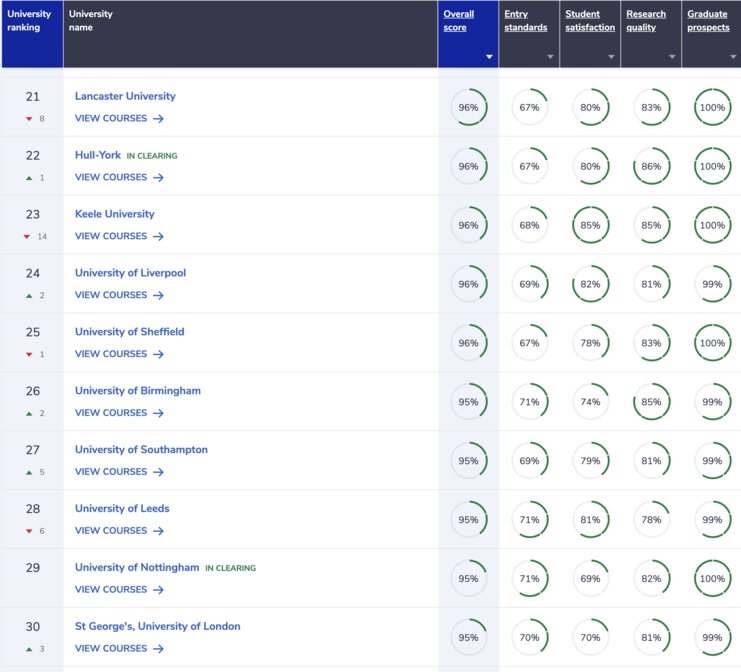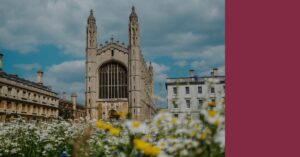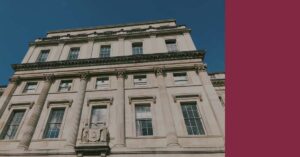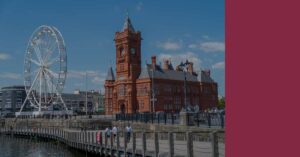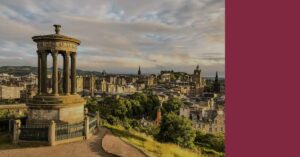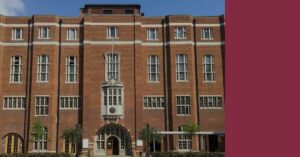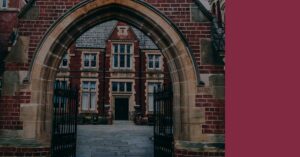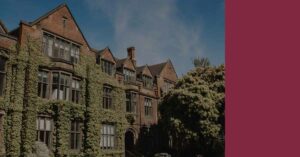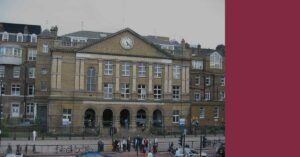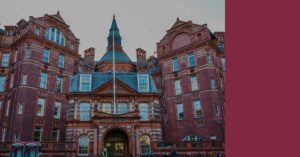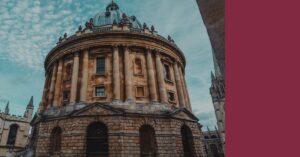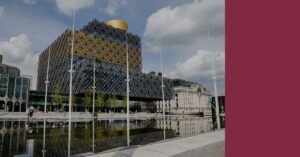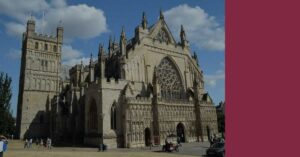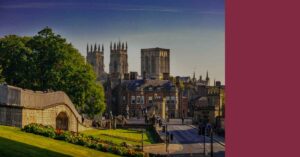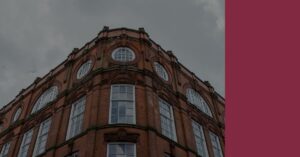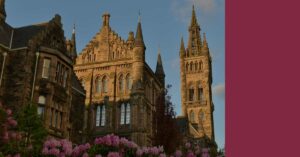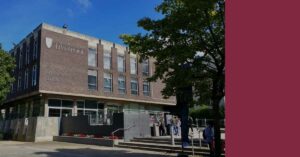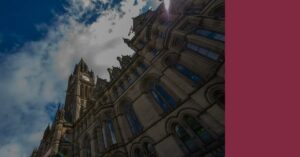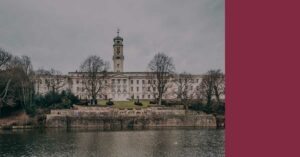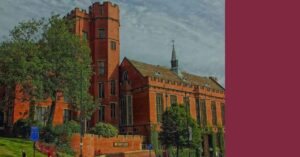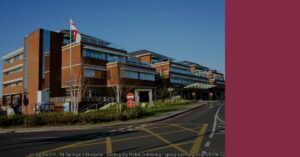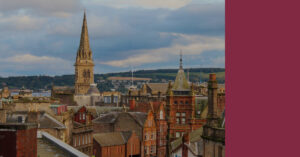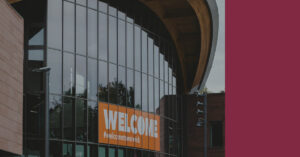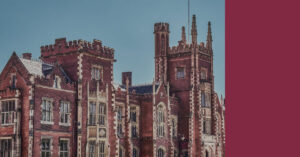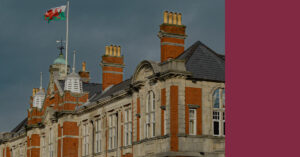Welcome to our UK Medical School Review series. In this series, we work with current students to produce an in-depth overview of each UK Medical School, covering what it is like to study there, how the course looks and what you need to get in.
Today, we are focussing on Nottingham Medical School, a member of the Russell Group of UK research-intensive universities. Ria, a Nottingham Medic, will share her experiences and insights as a current student throughout.
Let’s start with an overview of Nottingham Medical School…
Overview Of Nottingham Medical School
About Nottingham Medical School
Medicine and Health Sciences is one of the 5 core faculties at the University of Nottingham. The Medical School was the 1st new Medical School to be set up in the 20th century in the country. 48 students made up the first intake of the Medical School, whom graduated in 1975. Since then, intake has slowly increased to the current 330, making it one of the biggest Medical Schools now. 2003 also saw the opening of the Derby City General Hospital where the School of Graduate Entry Medicine and Health is founded.
As mentioned, Nottingham offers both a 5-year Undergraduate Medicine degree and a 4-year accelerated Graduate entry course. A 3rd Medicine programme is offered for those from disadvantaged backgrounds to widen access to Medicine. This is 6-years in length; the additional year being a Foundation Year before the standard 5-year course, also based at Derby. All 3 programmes lead to an eventual BMBS (Bachelor of Medicine, Bachelor of Surgery) degree. There is the opportunity to complete to complete the 5-year and 6-year courses at the University of Lincoln which works in collaboration with the University of Nottingham, delivering the same content, being awarded the same degree from Nottingham.
Nottingham Med School
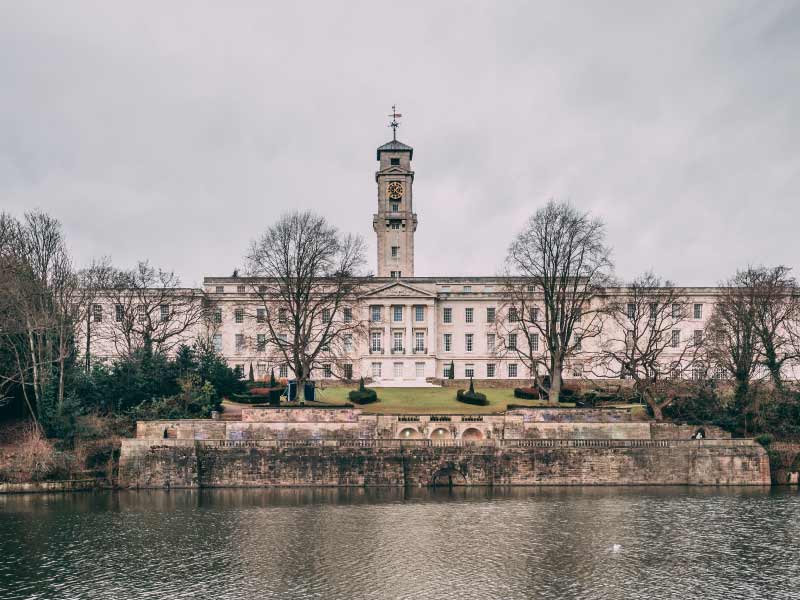
- University Age: 74
- UK Ranking: 29th
- Pint Price: £4.00
- Alumni Notability: 8/10
- A-level Requirements: AAA
- Places Available: 330
- Applicant Success Rate: 11%
- Teaching Style: Integrated
- Interview Style: MMI
- Admissions Test: UCAT
Nottingham Medical School Alumni
Notable alumni from Nottingham include Sir Peter Mansfield, a pioneer in MRI development for which he won a Nobel Prize; Professor Jim Thornton, a key figure in the world of Obstetrics, and Professor Simon Johnson, the man who published the first international diagnostic and clinical management guidelines for lymphangioleiomyomatosis.
Why did you choose to study at Nottingham?
“One of my main reasons for choosing the University of Nottingham Medical School is that it is a campus-based University. I had heard from people in the year above that it is easier to make friends and a more comfortable lifestyle which is what I was looking for. Secondly, Nottingham Medical School is highly rewarded and known for its research. As someone who is looking to pursue academics and research, attending a University that has professors who are top in their fields and doing ground-breaking research is important. Especially, in 3rd year, you get the chance to work with some of them as your supervisor when you do your extra BMedSci degree.
This degree was one of the other reasons I picked Nottingham – the chance to do an extra degree but not have to take an extra year out (making the course only 5 years) is incredibly useful and means you still pick up critical research and academic writing skills.”
What is the best thing and worst thing about your Medical School?
“The best part of Nottingham Medical School is the friendliness of all the staff – lecturers and personal tutors. They are all very easy to contact and welcoming; you can speak to them after lectures or email them any questions you have. Others have offices at the Medical School and are very happy for you to visit them to discuss the topics they teach. Their enthusiasm is infectious, and you find even the hardest and most boring topics interesting because they love them.
The worst thing about Nottingham Medical School is their organisation. Often, timetables aren’t confirmed a week before the lectures start, lectures have occasionally been cancelled but we weren’t informed and teaching staff have little idea about the organisation and what’s going on. We are meant to have every lecture recorded (which is great!) but often that did not occur due to system malfunctions and staff not being told how to access the recording system. This is improving now though!”
Medical School Rankings
The following link will take you to the Complete University Guide Medicine League Table. Here, you can see that Nottingham Medical School takes 29th position with an overall score of 95%:
Rankings will, of course, differ between other tables; the Guardian includes different aspects to the Complete University Guide. When making your own decision on which table to look at, think about what you place more importance on, such as spending per student or career prospects. Keep in mind that all Medical Schools are highly ranked with excellent ratings across the board.
Notthingham Medical School Fees And Financial Support
Fees per year for home students to study Medicine at the University of Nottingham are £9,250. For international students, it is £28,000. Tuition fee loans are offered to all UK students by the Government and cover the course fees in full. Fees do not have to be paid upfront. Nottingham offers scholarships, bursaries and support funds for both home and international students alike. Students can also get advice on managing costs from the Funding and Financial Support Team whose focus is to help ensure student success and progression.
What are the living costs like?
“Living costs can vary depending on your lifestyle. Accommodation: self-catered accommodations can vary between £100- £160 a week depending on bed size and whether the room is ensuite. Catered on-campus accommodations are between £200 – £300 a week with the most expensive option being a studio flat. Public transport: most students on campus walk everywhere as everything is in close proximity. However, to get to the town centre, you can either take the bus or the tram. The tram is £2.50 for a day under-19 ticket or you can purchase month/year tickets which work out cheaper overall. The bus is similar prices – £1.30 for a single or £2.50 for a day.
You also have access to the free University Hopper bus which travels between different campuses and to Royal Derby hospital for placements. Lifestyle: alcohol prices vary depending on where they are purchased. Mooch, the student bar, sells beers and lagers at £3.80-£4. Wetherspoons, a common place to go drinking in Nottingham, sells pints for £2.60 and lagers for up to £3.80 too.”
Not sure where to start with your Medical School application?
Our Complete Bundle provides support for your Personal Statement, UCAT, BMAT and Interview and guides you to a successful application.
With our Complete Bundle, we guarantee that you will get at least one offer to study Medicine, or your money back.
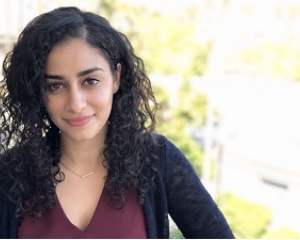

What Is Studying At Nottingham Medical School Like?
During the early years, Nottingham focused on helping students develop an understanding of the scientific and professional basics of Medicine, focusing on different systems and clinically-based topics. This is done through an integrated teaching style consisting of lectures, seminars, tutorials, case-based learning, eLearning, clinical skills workshops, self-study and anatomy practicals, in which students have the chance to complete full-body cadaveric dissection. Most learning will take place at the Medical School which is just across the road from the University campus. Some clinical placements do complement theory teaching, with the Queen’s Medical Centre providing the base for early years clinical study.
In later years, also referred to as the Clinical Phase, students will undertake a full-time placement in both primary and secondary care settings, covering a range of specialities. These take place in locations such as Nottingham itself, Derby, Lincoln, Grantham, Chesterfield and Boston.
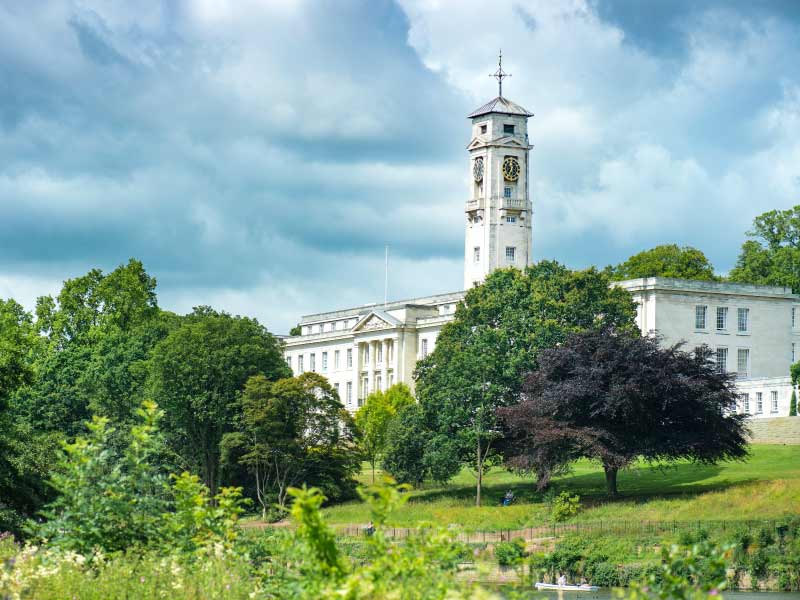
Nottingham Medical School Degree Content
The programme is typically divided into Year 1, Year 2, Year 3 and Final Years. It’s modular and spirally – what you learn will be built upon in later years.
During Years 1 and 2, students have the opportunity to complete optional modules that draw their interests; some examples include Complementary and Alternative Medicines, History of Anatomy and Medicine and Defects in Development. Due to the Covid-19 pandemic, no optional modules were run however they may return in future years.
Students have the chance to enhance their research skills through conducting their own research project, with an expert supervisor in an area of their interest, and undertaking 2 optional advanced medical science modules.
Here, you have the chance to be published in renowned medical journals and present at world conferences and, upon completion, will earn a BMedSci (Bachelor of Medical Sciences) degree!
The University of Nottingham does not have an official programme built-in to allow students to intercalate, likely due to the opportunity to already graduate with 2 degrees: the BMedSci and BMBS!
To complete the degree and prepare students for entering their Foundation Years as a Doctor, you conduct Student Selected Modules (SSMs) ending with a 6-week Elective, either within the UK or abroad, as well as complete a Student Assistantship.
Summary of the curriculum:
Year 1:
- Medicine 1: Scientific and Professional Basis of Medicine
- Themes: cells, biochemical basics, tissues of the body, muscle, nerves, pharmacology, blood and infection, reproduction, inflammation, metabolism
- Introduction to the patient as a whole person
- Ethical scenarios
- Basic clinical skills
- Medicine 2: Respiratory, Cardiovascular, Cancer and Musculoskeletal
- Integrated Medicine 1
- Biomedical Skills 1
- Anatomy, radiology and imaging
- Clinical measurements
Year 2:
- Medicine 3: Gastrointestinal Medicine, Endocrine Physiology, Reproductive Systems and Kidneys
- Management of disease
- Communication skills
- Epidemiology
- Medicine 4: Central Nervous System
- Weekly themes: pain, movement disorders, dementia, sensory disorders, mental illness
- Integrated Medicine 2
- Biomedical Skills 2
- Clinical Medicine
Year 3:
- Honours Year (research) Project
- Evidence-Based Medicine
- Clinical Pharmacology and Therapeutics
- Early Primary Care
Year 4 and 5:
- Clinical Phase 1: Foundations for Practice
- 5 sets of 6-week placements in Medicine, Surgery, Speciality Skills, Mental Health and Community-Based Medicine
- 12-week block of 2-week junior assistantship and 10-week of 2- or 4-week SSMs
- Clinical Phase 2: Advanced Practice
- Topics: Healthcare of Later Life, Leadership and Management Training, Intermediate Medicine including Rheumatology, Cancer and Palliative Care, Child Health, Obstetrics and Gynaecology, Advanced Primary Care, Critical Illness, Advanced Medicine and Surgery
This widening access to Medicine programme allows students from disadvantaged backgrounds, who achieved lower grades than those required, a chance to study Medicine. The Foundation Year is spent at Derby Medical School building and it is based on knowledge and confidence in Medical Sciences, as well as professional and practical skills required for the 5-year Undergraduate course. Modules include: Human Genetics, Cells and Tissues, Biological Molecules, Professional and Communication Skills, Body Structure, Biochemical Processes, Body Processes and an Introduction to Microbiology. Teaching is conducted in small groups of students to help build relationships. Upon successful completion of the Foundation Year, students progress into and join the students in the 1st year of the standard 5-year Undergraduate programme.
Here the 4 years are divided into the First 18 Months and Final Years. During the First 18 Months, students will build on knowledge using clinical case studies and teaching of the various systems of the body. Topics covered include: Structure, Function and Defence, Cardiovascular Sciences, Respiratory Sciences, Endocrine System, Limbs and Back, Alimentary System, Personal and Professional Development 1, Neurosciences, Professional and Personal Development 2, Urogenital System and an Integrative Module. Teaching takes place at the Royal Derby Hospital. In the final months of 2nd year, students begin the Clinical Phase. The Final Years follow a very similar route to that of the 5-year Undergraduate course.
What Makes Nottingham Medical School Unique?
What makes your Medical School unique?
“The University of Nottingham has 3 main features which make it unique. 1. Full body dissections: Nottingham is one of few Medical Schools in the UK that still do student-led full-body dissections. Personally, I find it such a critical part of the course and useful for learning anatomy as the full-body allows us to see the wider picture, and by doing the dissections ourselves, we learn a lot more than being taught. Every student gets the opportunity to dissect and that is an invaluable experience.
2. BMedSci degree: the medical course is 5 years like other Universities but encompasses an extra degree within the 3rd year where you write a dissertation on a certain healthcare/science-related topic. This means that we do not have to take an extra year out to get an extra ‘intercalated degree’ and still gain all the valuable research and writing skills if we want to pursue academia.
3. System-based learning: after 1st term, for the rest of the pre-clinical semesters, the teaching is based on systems each week. E.g. Weeks 1-3 will be Respiratory Systems with Week 1 being asthma, 2 COPD and 3 pneumonia. During this time we learn all the relevant anatomy, physiology and clinical skills relating to the topic. This is extremely useful to link all the topics together and means we have a better understanding of the science underlying the clinical relevance, but also have early clinical exposure with clinical skills and placements.”
Nottingham Medicine Selection Process
Stage 1: Applicants pre-screened against academic criteria with GCSE grades being scored.
Stage 2: UCAT scores for those meeting academic criteria are awarded points.
Stage 3: UCAT and GCSE scores are collated and ranked.
Stage 4: Applicants with the highest scores are invited to attend interview.
Stage 5: Scores from interview are compiled and ranked and offers are made to those who score highest and whose additional information such as personal statement and school references are deemed satisfactory.
Nottingham Medical School Entry Requirements
| Exam | Undergraduate Medicine |
|---|---|
| GCSEs | Points are awarded for each grade you achieve: 9/A* = 4 points, 8 = 3 points, 7/A = 2 points, 6/B = 1 point. Compulsory subjects scored are Sciences, English Language and Mathematics. For 5-year courses, highest 8 subjects are scored, for 6-year courses highest 6 subjects are scored. 12 or higher points needed for 5-year courses, 5 or higher points needed for our 6-year courses. |
| A-levels | AAA including Chemistry and Biology/Human Biology and a pass in the practical element of any science A-Levels taken. Contextual offer is AAB. |
| IB | Overall score of 36 points with 6, 6, 6 at Higher Level including Chemistry and Biology. Contextual offer is 35 points (6, 6, 5 at Higher Level including 6 in either Biology or Chemistry). |
| Exam | Foundation Year |
|---|---|
| GCSEs | Points are awarded for each grade you achieve: 9/A* = 4 points, 8 = 3 points, 7/A = 2 points, 6/B = 1 point. Compulsory subjects scored are Sciences, English Language and Mathematics. For 5-year courses, highest 8 subjects are scored, for 6-year courses highest 6 subjects are scored. 12 or higher points needed for 5-year courses, 5 or higher points needed for our 6-year courses. |
| A-levels | BBC including a B in both Biology/Human Biology and Chemistry and a pass in the practical element of any science A-Levels taken. |
| IB | Overall score of 28 points with 5, 5, 5 at Higher Level including Chemistry and Biology. |
| Exam | Dentistry |
|---|---|
| Degree | A minimum of a lower second-class honours in your first degree in any subject. |
| Other | Access to HE Diploma, Advanced Diploma, BTEC. |
Craft an application worthy of Nottingham with 6med!
Our Complete Bundle provides support for your Personal Statement, UCAT, BMAT and Interview and guides you to a successful application.
With our Complete Bundle, we guarantee that you will get at least one offer to study Medicine, or your money back.
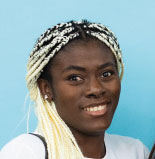

Nottingham Medical School Personal Statement
The University of Nottingham don’t score your personal statement and it isn’t used as part of their selection process for interview, however, it can be assessed alongside your school reference after interview to determine who offers are made to.
When assessing the personal statement, Nottingham takes into account your suitability and academic potential, as well as your intellectual curiosity and interests. Try to remember you are more than just your textbooks and include those hobbies of yours that shape who you are!
Nottingham don’t expect NHS work experience due to the Covid-19 pandemic, however, they do expect you to show you have attempted to, and gained, insight into the career as well as the scope of the role, such as the positives and negatives. This can be done through volunteering in a care-related setting, volunteering with disadvantaged groups, paid employment working with the general public and online courses/research. Discuss not just what you did, but also what you learnt from it. Reflection is key! Try to show the core values and skills of a good doctor that you have gained from your experiences that make you right for the medical career.
Ultimately, know your personal statement inside out and be candid, as you may be asked to draw upon your experiences in the interview and it can provide a very handy starting point for your answers!
Nottingham Medical School Admissions Tests
UCAT
You need to undertake the University Clinical Aptitude Test (UCAT) in order to apply to the University of Nottingham. Like they do with your GCSE scores, Nottingham will award points for the score you achieve on each component of the UCAT, including the Situational Judgement Test. In the 4 components excluding the Situational Judgement Test, a maximum of 12 points is awarded to a UCAT score of 801-900, 10 points for 701-800, 8 points for 601-700, 6 points for 501-600 and 2 points for 401-500. 60 points are awarded to a Band 1 in the Situational Judgement Test, 45 for Band 2, 20 for Band 3 and 0 for Band 4. Anyone with a Band 4 will not be invited for interview.
Scores are then collated with GCSE scores and those scoring highest will be invited for interview. There is no fixed threshold score when selecting for interview as it depends on multiple individual factors for each year. For entry to the 4-year Graduate course, the GAMSAT is required. The BMAT is not required.
Nottingham Medical School Interview
MMI Interview Style
Interviews for Medicine at the University of Nottingham are in the Multiple Mini Interviews (MMIs) format. There are 8 stations, each lasting 6 minutes, with the whole interview lasting approximately 60 minutes. The first station will open with a 1-minute ‘ice-breaker’ that doesn’t contribute to the overall score.
Included in the interview is 1 role-play scenario with a current medical student and 5 minutes to briefly talk about one of your interests, teaching the interviewer about it. It is important in this time to check with the interviewer that they have understood correctly what you have taught them. Props and visual aids cannot be used.
During the interviews, candidates are expected to show good communication and listening skills, an understanding of professional issues such as teamwork, respect for patients and contributions of those working in professions allied to Medicine and attributes that make you a good Doctor and uphold GMC and NHS values.
Example Nottingham Medical School Interview Questions:
- Describe an experience during your work experience which elicited an emotional response. (2018)
- How do you manage stress, and why is stress management important as a doctor? (2019)
- Evaluate the pros and cons of the NHS. (2021)
- Why is consent important in healthcare? Are all patients able to give consent to their treatments? (2020)
- Speak to an actor, who is an elderly lady struggling to read her prescription. Offer her your help and explain her medication times to her. (2020)
- Speak to an actor, who is a fellow student, struggling to balance the workload at university. Try to calm her down and offer your advice and support. (2019)
- You are planning a social event for the medical society at the university, look at the list of tasks and decide and explain which order you would do them. (2021)
- When did you decide you want to study Medicine? (2019)
- What about the medicine course at Nottingham appeals to you? (2021)
- Medicine can be emotionally demanding, how would you remain detached? (2021)
- Why have you applied to medicine despite all the negativity towards the NHS in the news? (2021)
- How would your friends describe you? (2021)
Extra-Curriculars at Nottingham Medical School
Outside of study time, what do most people get up to?
“There are lots of things to do on and off-campus. One of the main things are societies: there are hundreds of different societies for different interests. There are sports societies which are held at the David Ross Sports Village, one of the best university sports facilities in the UK, with activities like climbing, squash, martial arts, fencing, snooker, swimming and sports classes. There are also general societies and academic subject-based societies. For Medics, we have the option to go to general societies but also medic-specific societies run under the MEDSOC (Medical Society) such as Teddy Bear Hospital, WAMS, Musical Medics and HEARTSTART. These medic-only societies are a great way to meet more people on the course and from different year groups to make more friends. They are also a way to enhance your personal skills and CV by being a committee member or volunteering e.g. with Souprunners.
Apart from that, students love to relax with their friends and explore the campus and town-centre. Particular highlights, especially in summer, have been walks around Wollaton Park and Highfields Park – you can now boat on the lake too which has been lovely in the nice weather, as well as sitting on the Downs and having a picnic. For when it is poor weather, we like to try lots of restaurants in Beeston town centre and Nottingham town centre, or if you’re feeling lazy, there are many places to eat on Univeristy Park Campus itself like the student bar Mooch, but as Nottingham campuses are so close to the city centre, you never run out of things to do or see!”
What is the Nottingham accommodation like?
“There are three main types of accommodation for 1st years: University-owned accommodation which is catered or self-catered and private accommodation. Most students in 1st year opt for University-owned accommodation due to it being closer to the Medical School which is where most of the lectures are based. There are two ‘campuses’ in Nottingham: University Park Campus and Jubilee Campus but University Park is the main campus, and closest to the Medical School. University Park is also where seminars can be held. All halls on University Park Campus have catered accommodations and vary with some being ensuite or shared bathrooms e.g. Cavendish Hall is all ensuite while Lincoln Hall has more shared bathrooms. These are closest to the Medical School, with the furthest away Hall on University Park Campus (Cavendish Hall) still only being a 20-minute walk to the Medical School or a 5-minute tram ride (with the tram being an 8-minute walk).
Students who do not want catered accommodation can choose self-catered University-owned accommodation which is still a very popular choice. Broadgate Park, Dagfa House and SPC are the most common self-catered accommodations and are still close to the Medical School. Broadgate Park is a 15-minute bus ride to the Medical School and a 10-minute walk to University Park Campus.”
Nottingham Medical School Contact
Telephone: 0115 951 5559
Email: [email protected]
Postal address:
School of Medicine,
University of Nottingham,
Medical School,
Nottingham,
NG7 2UH
Advice for prospective Nottingham medical school students
What advice would you give to a first-year student starting at Nottingham Medical School?
“Immerse yourself in every opportunity you get and attend every lecture, even if it is recorded and optional. University is the chance to find yourself and try out new societies and activities you’ve always wanted to try. Do not hold back because you think you won’t be good or don’t want to go by yourself – these activities are the perfect opportunity to make new friends and find yourself. That being said though, do not fall behind on Medical School work. It becomes very easy once you’ve missed one lecture to miss more and promise yourself you will just watch the recordings – but it is a rabbit hole. You will come to a point where you cannot catch up in time for exams and your grades and mental health will suffer for that.
Utilise your free days early on so that when it comes to exam period and later in the year, you are more relaxed and prepared. Yet, also maintain a good work-life balance. You are allowed to have ‘off’ days and feel unwell or unmotivated. Use those days for self-care and look after your physical and mental health. Medical School is already hard and you are focused so much on caring for other people, that you shouldn’t forget about yourself!”
Check out our other UK Medical School Reviews:
Not sure where to start with your Medical School application?
Our Complete Bundle provides support for your Personal Statement, UCAT, BMAT and Interview and guides you to a successful application.
With our Complete Bundle, we guarantee that you will get at least one offer to study Medicine, or your money back.
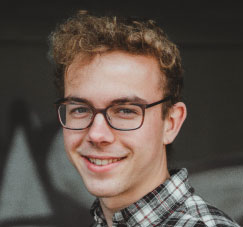

By Phoebe Baker
